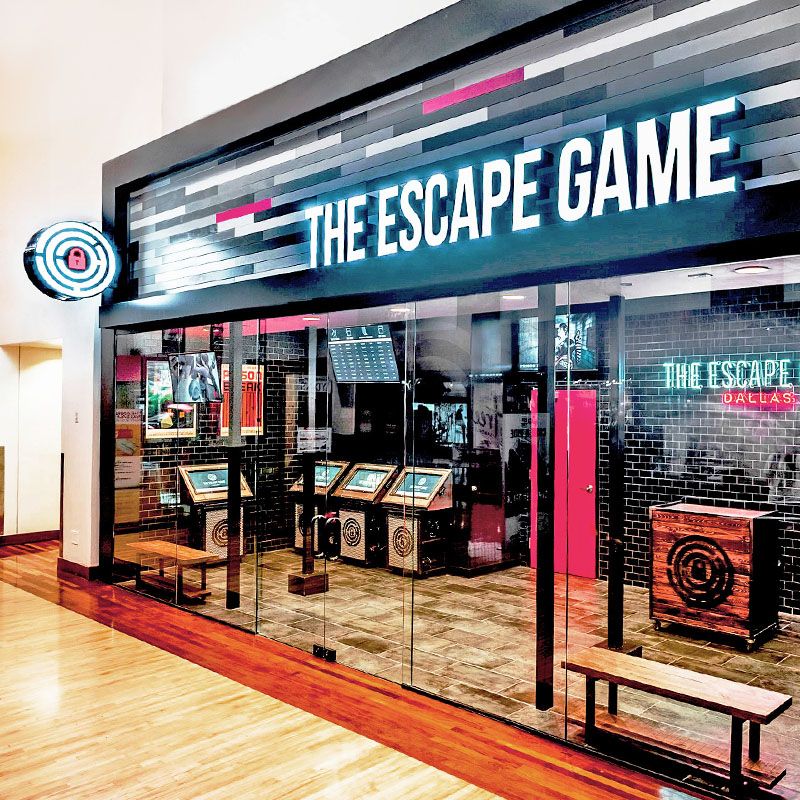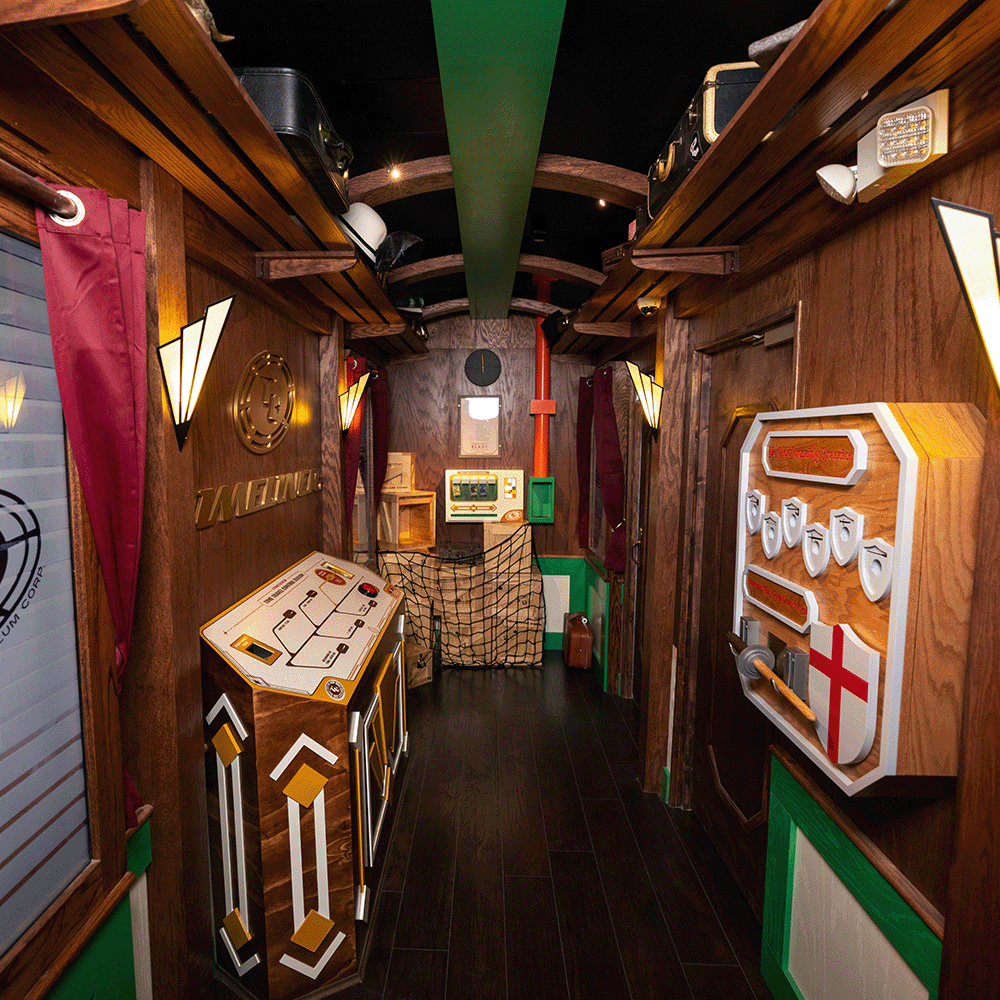Best Escape Room Experience-- Exciting Games and Puzzles for Groups
Group Methods: How to Collaborate Successfully in a Getaway Space
Browsing the complexities of an escape space requires greater than plain enthusiasm; it requires a well-coordinated approach based in clear interaction, critical function projects, and skilled time monitoring. Groups should actively pay attention to each participant's understandings, designate duties that align with private toughness, and keep regular check-ins to make certain focus and stop redundancy. By cultivating a setting that values cohesion and flexibility, groups can substantially heighten their performance and success rates. The nuances of these methods can transform the experience, however just how exactly can they be executed to maximize the capacity for success?
Establish Clear Communication

To facilitate clear interaction, it is essential to assign a main point of call for details dissemination. Brief, concentrated updates from each group member can keep the team notified without overwhelming them with info.

Appoint Duties Purposefully
While clear interaction sets the structure for efficient synergy, assigning roles strategically makes sure that each team participant's staminas are used properly. In an escape area circumstance, the time-sensitive and intricate nature of challenges necessitates a well-organized strategy to job delegation. By identifying and leveraging specific competencies, groups can optimize their analytical abilities and enhance overall efficiency.
First, examine the one-of-a-kind abilities and attributes of each participant. For example, a person with an eager eye for information may excel in locating surprise objects, while a logical thinker can be better fit to fixing problems - best escape room. It's equally vital to have a leader who can supervise progress, manage the timeline, and make crucial telephone calls when needed. This role usually needs strong organizational and interpersonal abilities.
Second, make certain that functions are adaptable and versatile. As brand-new challenges arise, the team must have the ability to pivot, reallocating tasks as required. This versatility helps maintain energy and prevents bottlenecks that might happen as a result of stiff duty assignments.
Inevitably, a tactical method to duty project not just takes full advantage of the strengths of each staff member but likewise cultivates a natural setting, driving the team towards an effective retreat.
Utilize Diverse Skills
Recognizing and utilizing the diverse skills within your team can substantially boost your efficiency in an escape space. Each team participant brings special strengths to the table, and effectively leveraging these abilities can expedite problem-solving and enhance overall efficiency. For example, a group member with solid analytical skills might stand out at deciphering complicated codes or patterns, while an additional with keen empirical abilities may quickly detect covert clues that may overlook.
Efficient interaction is vital to using these varied abilities. Encourage group members to articulate their understandings and concepts quickly, making certain that all prospective services are thought about. This comprehensive method cultivates a dynamic setting where creative escape room in minneapolis thinking and essential reasoning can thrive. In addition, appointing jobs that align with each member's toughness can stop bottlenecks and make certain that progress is continuous.
Furthermore, variety in abilities often equates to diversity in assuming designs, which is vital in an escape room setup. While some obstacles might require sensible thinking and accuracy, others may profit from imaginative and lateral thinking. By acknowledging and leveraging this variety, groups can resolve a wider series of challenges better, thereby enhancing their possibilities of an effective retreat.
Manage Time Properly

First, allocate preliminary mins for a quick study of the space. Determine noticeable problems and split jobs based upon staff member' staminas, ensuring that no one is idle. Establish internal time checkpoints to examine progress regularly; for instance, aim to have half the challenges addressed by the mid-point of the game. This method can help keep the group concentrated and stop time from sliding away unnoticed.
Furthermore, prevent one-track mind. If a challenge is taking also long, rotate team participants or carry on to one more obstacle, returning later with fresh point of views. Communication is paramount-- keep everyone updated on resolved puzzles and remaining tasks to avoid repetitive efforts.
Finally, use any type of hints or hints sparingly but purposefully - best escape room. Knowing when to ask for help can conserve valuable time. By sticking to these time administration concepts, groups can dramatically improve their possibilities of an effective and pleasurable retreat room experience
Debrief and Mirror
Reflection is a necessary aspect of group advancement and improvement in the context of getaway spaces. Once the obstacle is completed, whether successfully or otherwise, it is critical for the group to participate in an organized debriefing session. This procedure allows employee to evaluate their performance, recognize strengths, and identify areas for renovation.
Begin the debrief by reviewing what worked out. Highlight certain instances of reliable communication, analytical, and partnership. Recognizing these favorable habits strengthens them and urges their repeating in future look what i found difficulties.
Next, attend to the challenges experienced. Review moments of confusion, miscommunication, or inefficient approaches. Encourage an open and constructive discussion where employee can share their point of views without anxiety of criticism. This promotes a society of constant renovation and learning.
Verdict
Finally, effective collaboration in an escape area is based upon clear interaction, click resources tactical function jobs, the efficient use of varied abilities, and skillful time monitoring. Regular check-ins and structured debriefings are crucial for keeping focus and fostering constant improvement. By developing a cohesive and flexible team environment, the probability of efficiently fixing puzzles and achieving the goal of leaving the space is substantially boosted. This method not just makes sure success but likewise advertises cumulative growth and discovering.